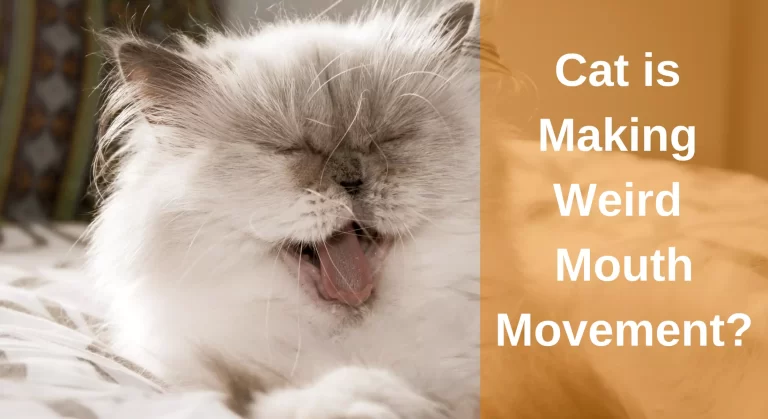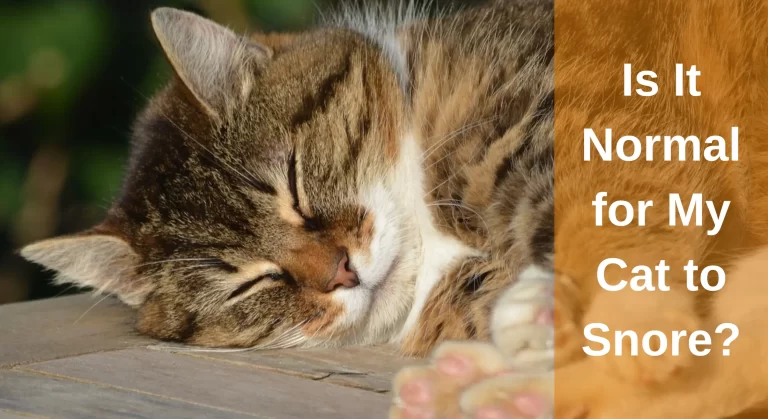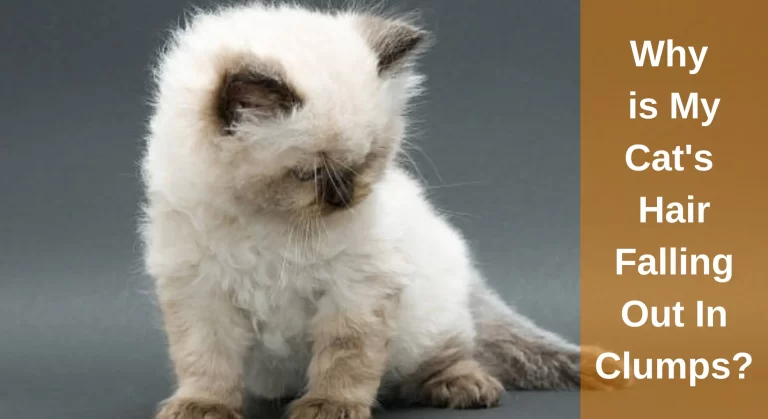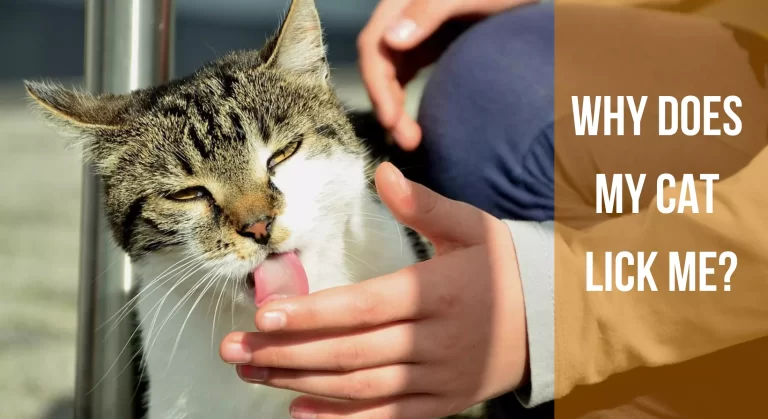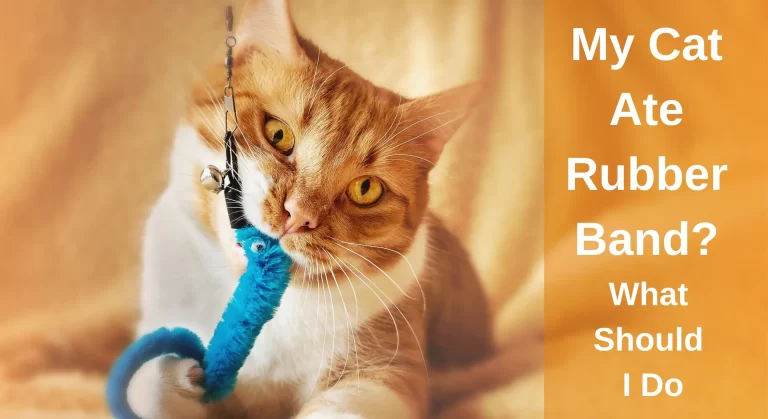My Cats Meow is Weak and Raspy – Why And How to Help?
Cats use their meows to express a range of emotions, including hunger, affection, or distress. A clear and strong meow indicates a healthy cat who is effectively communicating with its owner and shows no signs of strain. However, when a cat’s meow becomes weak and raspy, it may be a cause for concern. Why my cats meow is weak and raspy?
There are a few reasons why your cat’s meow might be weak and raspy. One possibility is that your cat has laryngitis, which is an inflammation of the larynx, or voice box. Laryngitis can be caused by a viral infection, allergies, or other factors. Another possibility is that your cat has an upper respiratory infection, and vocal cord dysfunction, which can also cause a weak and raspy meow. Finally, a tumor in the throat or larynx can also cause a change in your cat’s meow. Foreign objects, Excessive use of voice, or aging could also cause hoarse meow. If you are concerned about your cat’s meow, it is always best to consult with your veterinarian to rule out any underlying medical conditions.
For owners, this variation in vocalization can be concerning. In this article, we will explore the causes of hoarse meowing in cats, how to recognize it, and provide helpful tips to assist your furry friend. w’ll also discuss some other theories and therapy options to resolve this issue. Let’s have a look at them:
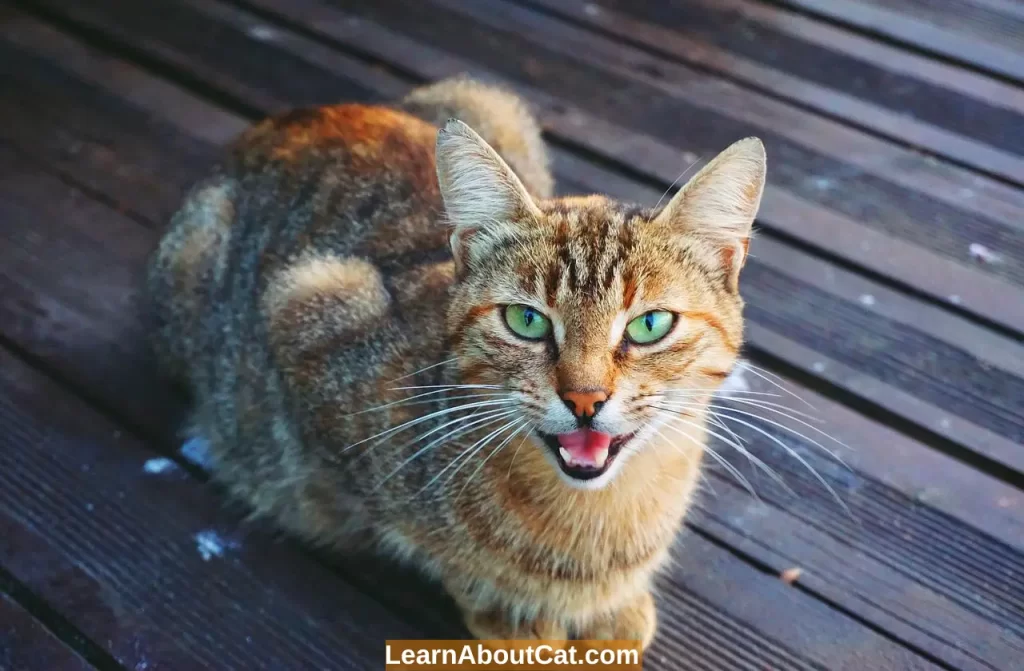
What is a Hoarse Meow in a Cats? Laryngitis in Cats
Most cats have raspy meows at a certain point in their lives. The most prevalent reason for this is cat gets laryngitis, which inflames their larynx.
Laryngeal inflammation can affect the voice box, known as the larynx, in cats. This condition causes the sensitive and elastic tissue of the larynx to become inflamed, resulting in thickening and reduced flexibility resulting in an accumulation of secretions surrounding the vocal cords. Because of these changes, the vocal cords can no longer generate the same elevated sounds as before. Thus, making the cat’s voice hoarse.
It can be compared to a person experiencing a sore throat or losing their voice. While occasional hoarseness might not be a cause for concern, persistent hoarse meowing should be investigated further.
Causes of Laryngitis in Cats: What Causes Hoarse Meow in Cats
There are many causes of cat laryngitis, including:
- Viral infections: Upper respiratory infections (URIs).
- Bacterial infections: Bordetella bronchiseptica or Mycoplasma felis.
- Foreign bodies: A toy or piece of food
- Hormonal imbalances: Hyperthyroidism
- Paralysis of laryngeal nerve: Vocal cords are damaged or severed
- Tumors: Tumors in the larynx can also cause inflammation and lead to laryngitis.
- Inhaled irritants: Exposure to smoke, dust, or other irritants.
- Allergies: Dust, pollen, or Dander
It is alarming when a cat’s meow is weak and raspy. Several factors can contribute to a cat’s hoarse meow. It’s essential to identify the underlying cause to provide appropriate treatment. Here are some common causes:
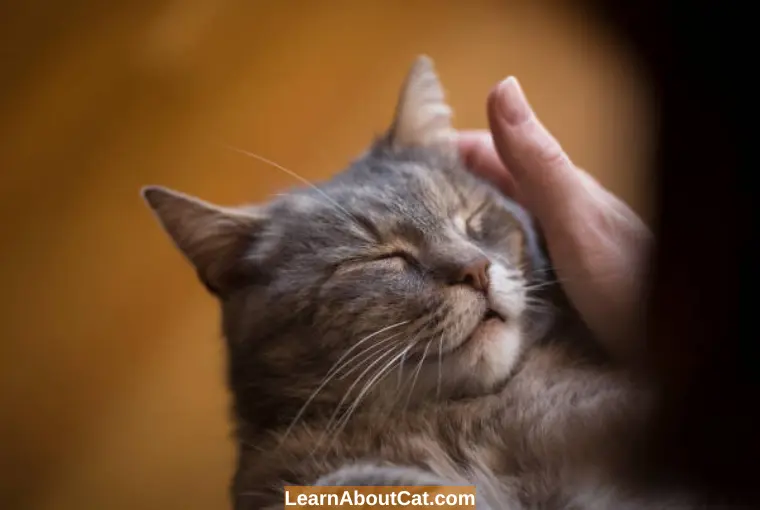
1. Using the Voice Excessively
Is your feline friend’s meow sounding weak and raspy? It could be because they’ve been using their voice a bit too much. When cats meow loudly for extended periods, it puts immense strain on their vocal cords. Consequently, meowing becomes more challenging for them, resulting in a weaker and fainter sound.
Cats meow to capture the attention of their owner or when they want something. Therefore, constant meowing and excessive use of their voice only when something is seriously wrong or when they experience high levels of distress.
You see, if your cat went through something upsetting or had a rough time, like being separated from you, they could have meowed their little hearts out, which could result in their voice sounding all raspy now.
For instance, imagine your cat accidentally getting trapped in a small room or cupboard. They desperately need to get out to access their food, water, litter tray, and other necessities. In such a situation, your cat may meow frantically as a way to inform you of their trouble and seek help.
Depending on the duration of their entrapment, your cat may exhaust their vocal capabilities. This leads to an extremely weak and husky meow. It is crucial to keep a watchful eye on your cat and prevent such situations from arising.
2. Respiratory Infection
If your cat’s meow is weak and hoarse, there’s a possibility that it could be due to an upper respiratory infection. It’s like a pesky bacteria or virus decided to invade your feline friend’s throat, nose, or sinuses, causing all sorts of trouble.
There are a bunch of viruses and bacteria that can cause these infections, but the most common culprits in cats are Feline Herpesvirus Type 1 (FVR), Feline Calicivirus (FCV), Bordetella bronchiseptica, Chlamydophila Felis. Nasty little things, aren’t they? FVR and FCV are responsible for a whopping 90% of feline upper respiratory infections.
Now, these infections have symptoms that will remind you of a good old human cold. Your poor kitty may start:
- Sneezing
- Coughing
- Have Stuffy nose
- Hoarse meow
- Mouth ulcers
- Gooey discharge from their nose
- Eye discharge
- Fever and Lethargy
- Other strange vocalizations
In severe cases, breathing difficulties may also rear their ugly heads. It’s not pleasant for your furry friend, that’s for sure. Keep an eye out for other signs of sickness too, like increased sleeping or a reduced appetite.
Most of the time, these infections last around a week, and once your cat’s immune system kicks into gear and fights off the nasty intruders, their voice should be back to normal.
But don’t wait too long! If you spot any of the above symptoms, make sure you take your kitty to the vet. They’ll be able to figure out the exact type of infection and prescribe the appropriate treatment. If it’s a bacterial infection, antibiotics will be the go-to solution. For viral infections, it’s all about treating the symptoms and providing comfort, usually with some anti-inflammatory meds and decongestants.
Remember, cats with upper respiratory infections (URIs)are highly contagious to other cats. So, if your kitty is under the weather, keep them indoors until they’re back in tip-top shape to prevent the infection from spreading like wildfire in your neighborhood. And if you have multiple cats, it’s best to keep the sick one isolated until they make a full recovery.
Also Read: My Cat Can’t Meow Just Squeaks!
3. Throat and Nose Polyps
If your cat’s meow sounds weak, it’s possible that they have nasopharyngeal polyps, but this is far less frequent than an upper respiratory illness or an overworked voice. These little tissue growths expand along the ear canal as they become larger until they finally reach the back of the throat.
Once the polyps reach a certain size, they can partially or completely block the back of the throat. This makes it impossible for air to enter or exit your cat’s mouth, which makes breathing exceedingly challenging for them. Their meow may also sound strangled and raspy as they struggle to sound through these polyps and be heard.
There are a few other signs that might clue you in on the presence of nasopharyngeal polyps.
- Snorting sound during breathing
- Pawing at the ear
- Head shaking occasionally
- Loss of balance occasionally
Take your cat to the vet as soon as possible if you suspect they have nasopharyngeal polyps. Typically, your cat will need surgery to remove the polyp so that it can breathe properly once again
4. Hyperthyroidism
Hyperthyroidism is the most typical cause of a cat’s rough or hoarse meowing. Hyperthyroidism is a condition that arises when a cat’s thyroid glands produce an excessive amount of thyroid hormone, thereby accelerating the cat’s metabolism to an unhealthy level.
This hormonal imbalance can lead to a raspy meow due to the swelling of the thyroid glands. The enlarged glands can exert pressure on the trachea and larynx, resulting in a hoarse-sounding voice.
In sick cats, this gland, which is located in the neck, enlarges and swells. For instance, the enlargement may obstruct swallowing, making it challenging for the cat to eat. It can also cause shortness of breath and breathing difficulties as the cat attempts to inhale more air.
In addition to the changes in vocalization, you may observe other symptoms in your cat. Their coat may appear dull and unkempt despite grooming efforts. Despite an increased appetite, your cat may continue to lose weight, giving the impression that they are constantly hungry.
They might also become more vocal, particularly during the nighttime, emitting yowls accompanied by a raspy meow. If you notice any of these indications, it is important to consult a veterinarian who can conduct blood tests to determine whether your cat has hyperthyroidism.
Cat hyperthyroidism can be treated through medication such as radioactive iodine therapy, surgery, or dietary therapy.
Also Read: Signs Your Cat is Dying of Thyroid Disease
5. Foreign Objects Stuck
If your inquisitive feline has a penchant for chewing on household items, there is a possibility that they may have ingested something that has become lodged in their throat. Cats are known to swallow small pieces of string, toy fragments, fabric, or hair ties, and these objects can create a blockage in the throat. As a result, your cat may experience difficulty when attempting to meow, leading to a weakened sound.
Additionally, if cats eat their meal too quickly, food fragments might get lodged in their throats. Any obstruction that prevents sound and air from escaping might make your cat’s meow seem weak and raspy.
If you observe your cat coughing, retching, displaying a loss of appetite, or straining while emitting a weak or hoarse meow, it is important to promptly seek veterinary care. Your veterinarian will be able to establish what sort of object it is and if it is blocking totally or partially. If there is indeed an object obstructing your cat’s throat, the veterinarian will have the necessary tools, typically forceps, to safely remove it. It is crucial not to attempt removing the object yourself, as this could potentially push it further down the throat and worsen the situation.
6. Loss of Laryngeal Nerve Function
Laryngeal nerve paralysis is a condition that adversely affects the voice of your cat. Furthermore, it can lead to a constriction of the windpipe, resulting in breathing difficulties. In severe cases, a complete blockage of the airway may occur, leading to suffocation. During the initial stages of the condition, you may observe your cat experiencing labored breathing, with occasional panting even during periods of rest. A hoarse and raspy meow is a prominent indicator of potential laryngeal nerve paralysis.
Cats with laryngeal nerve paralysis exhibit various symptoms, including:
- Pulled back lips and an expanded chest
- Dark-red or purple tongue,
- Weakness and lethargy
- Weak and raspy meow
- labored breathing and inability to catch their breath
- Loud and noisy breathing
- Coughing
- Reduced exercise tolerance
- Overheating due to impaired panting ability
Paralysis of the larynx is a life-threatening condition that can cause suffocation in the worst cases. Therefore, if your cat is breathing poorly or displaying other signs of respiratory distress, you must immediately take them to the vet.
Veterinarians possess the expertise to stabilize your cat’s condition and aid in their breathing. In some cases, the cat may require intubation to ensure adequate oxygen supply to their lungs. It is important to note that this condition does not resolve on its own, but surgical options are available to facilitate the recovery of your cat.

What is the Normal Therapy for Feline Laryngitis? Home Remedies
While veterinary care is crucial, there are some home remedies that may help soothe your cat’s weak and raspy meow. These remedies aim to provide relief and improve their vocalization:
- Humidifier: Adding moisture to the air can help ease respiratory discomfort and reduce inflammation in the vocal cords. Consider using a humidifier in the areas where your cat spends most of their time. A soft, damp washcloth can gently wipe the cat’s nose so it can breathe more easily.
- Steam Treatment: Create a steamy environment by running a hot shower or using a vaporizer in a closed bathroom. Let your cat spend some time in the steamy room, which can help alleviate congestion and soothe its vocal cords.
- Hydration: Ensure that your cat has access to fresh water at all times. Staying hydrated can help maintain the moisture levels in their vocal cords.
- Rest and Stress Reduction: Provide a calm and stress-free environment for your cat. Minimize loud noises and create a comfortable space where they can rest and recover.
- Adjusting Diet: Consult with your veterinarian regarding your cat’s diet. They may recommend specific foods or supplements that can support their respiratory health. Offering wet, canned food to your cat can help soothe their throat while experiencing laryngitis. The soft texture of the food can be easier to swallow and provide temporary relief.
Tips for Ensuring the Safety of Your Beloved Cat

Regular Veterinary Checkups: Schedule yearly checkups for your cat to maintain their overall health. It is particularly important for kitten owners to bring their kittens to the vet for essential vaccinations.
FVRCP Vaccine: The Feline Viral Rhinotracheitis vaccine, also known as the FVRCP vaccine, helps reduce the risk of developing upper respiratory infections (URIs). Kittens should receive this vaccine every three to four weeks until they reach 16-20 weeks of age. These booster shots help train the immune system to recognize the vaccine and effectively fight off future infections. When a cat reaches 16 weeks, a final booster shot should be administered, followed by subsequent shots every three years.
Quarantine Sick Cats: If one of your cats falls ill, it is crucial to quarantine the sick cat from the healthy ones for a minimum of two weeks. Prevent the sharing of food bowls, water bowls, litter boxes, toys, or bedding between sick and healthy cats. This precaution significantly reduces the risk of spreading the illness. Additionally, remember to wash your hands thoroughly after handling the sick cat and consider changing your clothes.
By following these safety measures, you can help ensure the well-being and health of your feline companion.
Frequently Asked Questions
Should I be worried if my cat’s meow is raspy?
If a feline’s raspy voice is due to some underlying medical condition that affects its meowing ability, then you must call your vet. Moreover, in most cases, a cat’s raspy voice is due to laryngitis which means the larynx is inflamed, which causes irritation, disease, or an obstruction in the larynx.
When should a cat with a hoarse voice see a vet?
In most cases, there is no need to rush the cat to the veterinarian as long as it is eating, drinking and acting normally. Usually, within a couple of days or a week or two, a normal voice will return.
In case your kitty exhibits any of the symptoms listed above, you should bring them to the vet immediately. The underlying cause of respiratory infection can sometimes be serious, and may require veterinary care.
Can cat laryngitis go away on its own?
If laryngitis is triggered by a viral illness, it may resolve by itself in a few weeks. But if the underlying reason is a respiratory problem or some other disease, then you need veterinarian assistance. It’s critical to understand that felines can acquire sore throats, leading to breathing or eating problems.
How common is a hoarse voice in cats?
Cats, like humans, can develop hoarseness for a variety of causes. It could be a strange-sounding meow, a variation in the tone of the purring. In some cases, they may stop meowing entirely for a moment, meowing softly but not purring. These situations are quite normal.
However, in worse situations, a hoarse voice with no meow also occurs due to a laryngeal illness and other respiratory issues.
How can I tell if my cat’s meow is weak or just different?
To identify a hoarse meow, pay attention to changes in your cat’s vocalization. If the meow sounds weak, scratchy, or strained, it is likely hoarse. Additionally, observe if your cat’s meow has changed significantly over time.
How long does it take for a hoarse meow to improve?
The duration of improvement depends on the underlying cause and treatment. Some cases may resolve within a few days, while others may require more extended periods for recovery.
Final Words!
A weak and raspy meow in cats can be a sign of an underlying issue such as excessive use of voice, laryngitis, Hyperthyroidism, tumor and foreign bodeis that requires attention. Understanding the causes, recognizing the symptoms, and providing appropriate care can help your cat recover their normal vocalization.
If your cat’s meow remains hoarse or if you have any concerns, don’t hesitate to consult your veterinarian. Veterinarians may suggest dietary changes or the inclusion of supplements in the cat’s food to strengthen the cat’s immune system and help fight against viral illnesses. By being attentive to your cat’s needs and following professional advice, you can ensure their well-being and maintain a strong bond with your feline companion.
Related Posts:
Who is Isabella?
My name is Isabella, and I am a dedicated and knowledgeable cat enthusiast. With years of experience caring for cats and a deep love for felines, I made a mission to help other cat lovers navigate the challenges of cat ownership.

